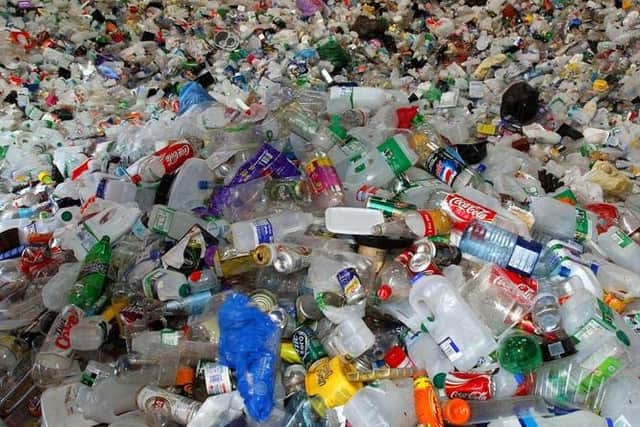Recycling errors ‘cost Ashfield taxpayers tens of thousands of pounds’
and live on Freeview channel 276
The Local Government Association is calling for labelling on packaging to be made clearer, to avoid recyclable waste getting mixed-up with non-recyclable items – an issue estimated to have cost English councils around £60 million last year.
Department for Environment, Food and Rural Affairs data shows 625 tonnes of waste collected by Ashfield Council were rejected at the point of sorting in the year to March – though this was less than the 685 tonnes rejected the previous year.
Advertisement
Hide AdAdvertisement
Hide AdRecycling charity Wrap, which works with governments and companies on sustainability, estimates waste disposed of as recycling, which is then found not to be recyclable, costs councils about £93 per tonne to dispose of – it would mean rejected waste cost taxpayers in Ashfield an estimated £58,125 in 2020-21 alone.


Overall, the authority collected 51,902 tonnes of waste, up from 46,243 the year before.
Coun Samantha Deakin, council cabinet member for parks, town centres and neighbourhood services, said “Recycling rates have increased in Ashfield while fly tipping is reducing, which is fantastic as it shows our residents are using the services we provide correctly, but we are aware contamination still continues to be a problem.
“We communicate with residents on what can and can’t be placed in our recycling bins, but with a lot of packaging either not recyclable, or not accepted by our recycling contractors we know this can be confusing.
Advertisement
Hide AdAdvertisement
Hide Ad“We are committed to increasing the recycling rates in Ashfield, working with Nottinghamshire Council and Veolia to increase the types of materials they will accept for recycling, and will continue to communicate with residents on what’s currently allowed to be put in our recycling bins.”
‘Good faith’
David Renard, environment spokesman for the LGA, which represents councils, pointed the finger at manufacturers who produce non-recyclable plastic packaging, which is then put in the recycling bin by people ‘in good faith’.
He said: “The burden then falls on councils to not only collect it and dispose of it, but to pay the extra cost of disposing of it.
“At a time when councils are working towards achieving net zero, they are doing so with one hand tied behind their back, courtesy of manufacturers littering our communities with plastic they know cannot be disposed of sustainably.”
Advertisement
Hide AdAdvertisement
Hide AdAcross England, 647,000 tonnes of recycling were rejected in the year to March, up from 525,000 tonnes the year before and the largest amount since records began in 2006-07.
Defra said a consultation had taken place on a proposal to force producers to label their packaging clearly, so people would know if items are recyclable or not.
A spokeswoman said: “We want to make recycling easier and ensure there is a comprehensive, consistent service across England.
“Our landmark Environment Act will transform the way we deal with rubbish."
Advertisement
Hide AdAdvertisement
Hide AdThe Act states food and garden waste should always be collected separately from dry recycling and residual waste.
She said: “It means recyclable materials will have to be collected separately, while separate food waste collection will also help reduce contamination.”
